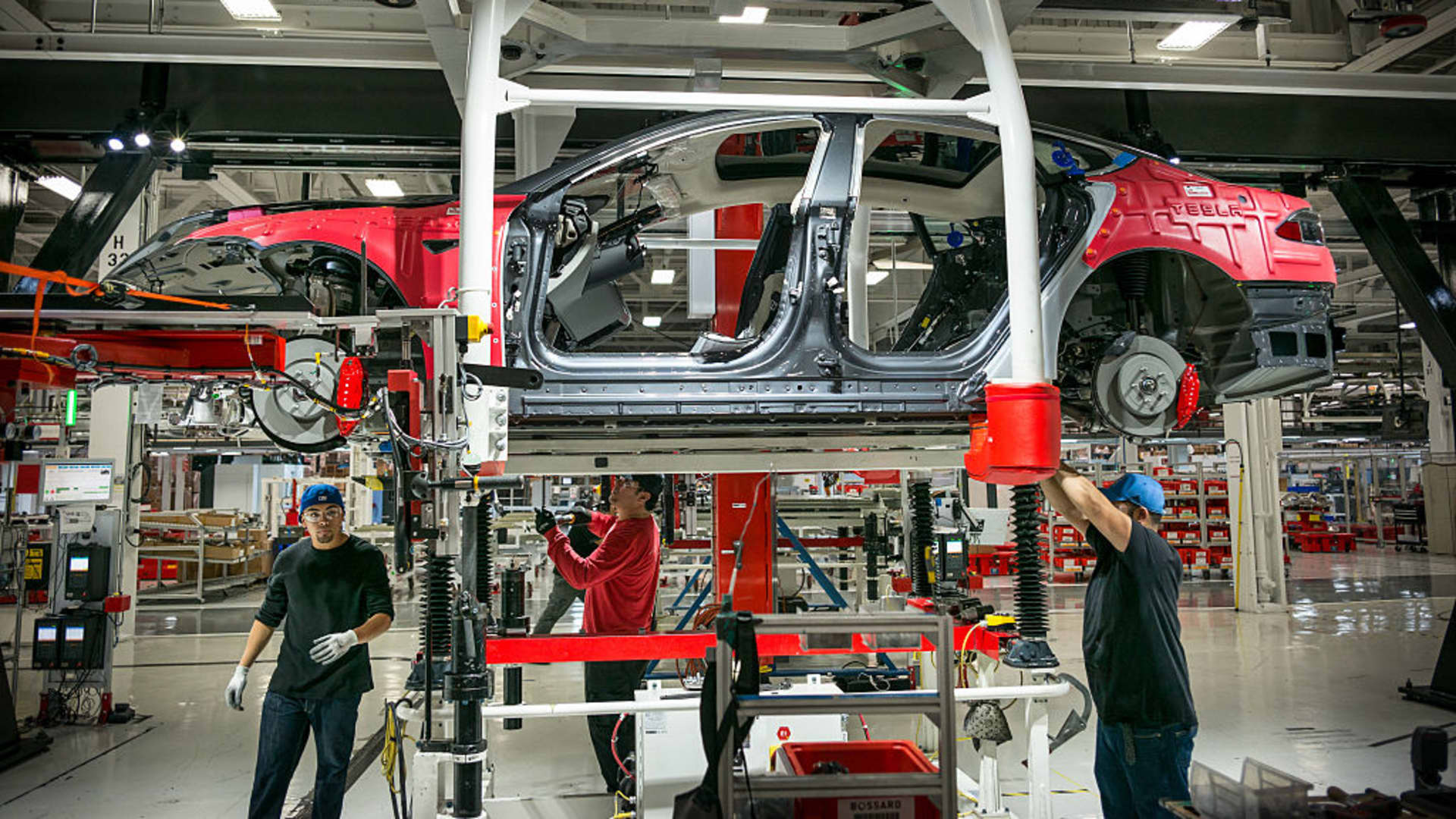Electric vehicle maker Tesla has settled a racist discrimination lawsuit in which a federal jury previously awarded $3.2 million in damages to Owen Diaz, a Black man who worked as an elevator operator at its Fremont, California factory in 2015.
Attorney Lawrence Organ, with the California Civil Rights Law Group, who represented Diaz told CNBC via e-mail: “The parties have reached an amicable resolution of their disputes. The terms of the settlement are confidential and we will not have additional comment.”
The same firm is representing current and former Tesla employees in a proposed class action lawsuit, Marcus Vaughn v. Tesla Inc., alleging that the racist discrimination and harassment of Black workers has continued at the automaker. Diaz is not part of that litigation.
Organ told CNBC by phone on Friday, “It took immense courage for Owen Diaz to stand up to a company the size of Tesla. Civil rights laws only work if people are willing to take those kinds of risks. Even though the litigation chapter of his life is over, there’s still a lot of work to do for Tesla.”
He said, “When I started this case, I suggested that the conduct would stop if Elon Musk would make a statement and a commitment to his employees that this is not tolerated. We haven’t heard that after seven years of litigation, a nine-figure verdict then a seven-figure verdict. Why isn’t he stopping this conduct? That’s what doesn’t make sense to me. Tesla is supposed to be the factory of the future. But this conduct is from the Jim Crow past.”
The U.S. Equal Employment Opportunity Commission has also sued Tesla, accusing the automaker of violating “federal law by tolerating widespread and ongoing racial harassment of its Black employees and by subjecting some of these workers to retaliation for opposing the harassment.”
Tesla has called the EECO’s allegations “a false narrative that ignores Tesla’s track record of equal employment opportunity.”
Diaz’s case
In 2023, as CNBC previously reported, Diaz testified in a San Francisco federal court that his colleagues at Tesla regularly used racist epithets to denigrate him and other Black workers, made him feel physically unsafe at the factory, told him to “go back to Africa” and left racist graffiti in restrooms.
Diaz’s Tesla colleagues also left a racist drawing in his workspace, he said. The drawing was a rudimentary reference to Inki the Caveman, a 1950s-era cartoon whose main character is a Black boy portrayed with large lips, wearing a loincloth, earrings, and a bone through his hair.
During his trials, Diaz recounted that he had encouraged his son to work at Tesla, but would later regret the referral because his son was also exposed to a racially hostile workplace.
In his first trial, a jury awarded Diaz a much larger verdict, including punitive damages, of $137 million after he and his attorneys persuaded the jury that he had endured serious racist discrimination and the company failed to take all reasonable steps to end and prevent that and further civil rights violations.
Diaz and Tesla sought a retrial to decide damages after Judge William H. Orrick reduced the jury’s awarded amount to $15 million. Diaz once again prevailed, securing the $3.2 million verdict.
Elon Musk on X
The settlement with Diaz comes as Tesla CEO Elon Musk faces widespread criticism for his handling of hate speech on X, formerly Twitter, which he owns and runs as CTO.
As NBC News recently reported, Musk has shared unverified claims of cannibalism in Haiti this month on X, and shared posts smearing Haitian migrants as likely cannibals.
Progressive news organization MotherJones also reported that “the tech billionaire has been retweeting prominent race scientist adherents on his platform,” and “spreading misinformation about racial minorities’ intelligence and physiology.”
Tesla, which lacks a traditional public relations office in North America, did not respond to a request for comment.

